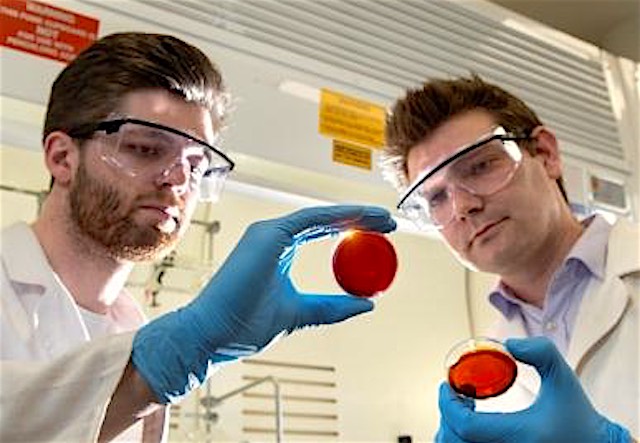Scientists in Australia accidentally stumbled on a substance that can remove toxic mercury from the sea. It’s called limonene, and can be found in any orange peel.
Dr. Justin Chalker, a professor of Synthetic Chemistry at Flinders University, and his team, were working with sulfur and limonene to create a red, rubber-like polymer. When they began running tests to measure its potentially harmful impact on the environment, they discovered quite the opposite — the substance can suck mercury right out of water.
Breakthrough: Mealworms Love Eating Styrofoam; Discovery is Best Thing In 10 Years
Mercury pollution plagues much of the world’s oceans, and cleaning it up has been difficult and expensive. The element, regulated by the EPA, is emitted into the air during the burning of fossil fuels. It eventually falls into water where it contaminates food supplies and can poison marine life. Eating fish and seafood tainted with mercury has been linked to serious health problems in humans.
The inexpensive polymer could potentially make large-scale cleanups of mercury affordable because it is made from industrial waste.
RELATED: Floating Garden Cleans As It Grows In One of Most Polluted US Waterways
“So not only is this new polymer good for solving the problem of mercury pollution, but it also has the added environmental bonus of putting this waste material to good use,” Chalker said.
Sulfur is a byproduct of the petroleum industry, which throws out 70 million tons of the substance every year.
On top of that, the citrus industry produces 70,000 tons of limonene every year that it cannot use.
Check Out: Air Purifier Converts Smog Into Jewelry As it Cleans
“It literally grows on trees,” Chalker told ABC News.
Their findings have been published in the German Chemical Society journal Angewandte Chemie International Edition.
Photo: Flinders University




















